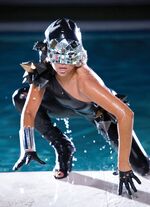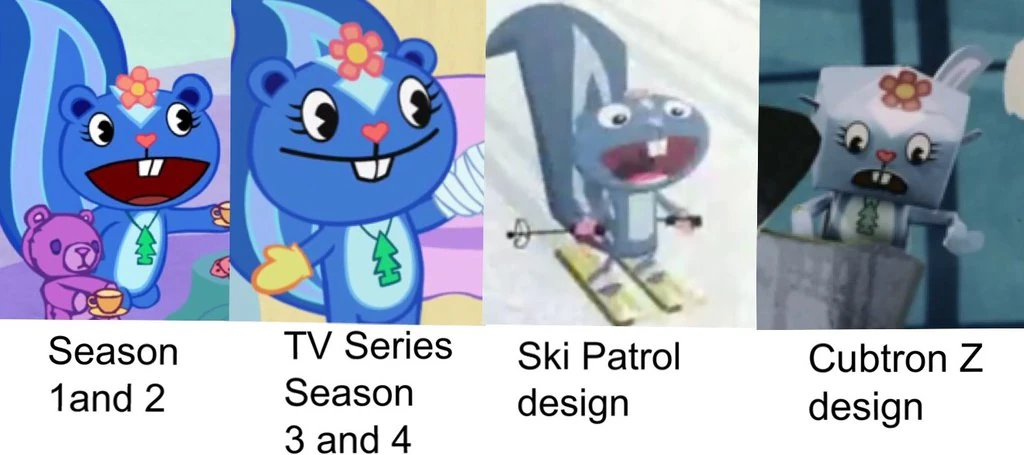Vignette Poker Face
Definition of Vignette
Vignette is a small impressionistic scene, an illustration, a descriptive passage, a short essay, a fiction or nonfiction work focusing on one particular moment; or giving an impression about an idea, character, setting, mood, aspect, or object. Vignette is neither a plot nor a full narrative description, but a carefully crafted verbal sketch that might be part of some larger work, or a complete description in itself.
Literally, vignette is a French word that means “little vine.” The printers, during the nineteenth-century, would decorate their title pages with drawings of looping vines. Hence, the derivation of this term is that source of drawings. Contemporary ideas from the scenes shown in television and film scripts also have influenced vignettes.
Found 162562 pictures of Wall murals - wallpapers poker, casino, game, card renovation of your home. Everyday life does not have to be gray. Vignette Poker Face slot, you need to consider other factors, such as design, plot, theme, and extra features. A newbie Vignette Poker Face can easily get lost in the variety of one-armed bandits. For starters, we recommend that you focus on classic slots and advanced 3D slots. Portrait Painting Vignette #5: Miss Julianna The 5th installment in a 10-piece series. Today's subject is my young niece, Julianna. No poker face there. Exclusive Athletics Poker Chips from Colleges Auburn Tigers $ 49.99 Add to cart. Poker Face 2018 (702) 778-4661 738 Pilot Rd Las Vegas, Nevada 89119. (a vignette) Submitted by wendy davis on Tue, - 10:56am (i’d written this some time ago, but thought i’d re-publish it as a bit of an antidote to the many grisly realities of the day.
Examples of Vignette in Literature
Example #1: In Our Time (By Ernest Hemingway)
“Maera lay still, his head on his arms, his face in the sand. He felt warm and sticky from the bleeding. Each time he felt the horn coming. Sometimes the bull only bumped him with his head. Once the horn went all the way through him and he felt it go into the sand … Maera felt everything getting larger and larger and then smaller and smaller. Then it got larger and larger and larger and then smaller and smaller. Then everything commenced to run faster and faster as when they speed up a cinematograph film. Then he was dead.”
In this impressionistic sketch, the author gives an illustration of the character Maera, who is a bullfighter that dies from injures inflicted by a bull.
Example #2: An American Childhood (By Annie Dillard)
“Some boys taught me to play football. This was fine sport. You thought up a new strategy for every play and whispered it to the others. You went out for a pass, fooling everyone. Best, you got to throw yourself mightily at someone’s running legs … In winter, in the snow, there was neither baseball nor football, so the boys and I threw snowballs at passing cars. I got in trouble throwing snowballs, and have seldom been happier since.”
In this excerpt, Dillard has used her personal experiences while growing up in Pittsburgh, and describes the nature of American life. In this particular scene, she tells us how she learned to play football with the boys, and offering this incident of her teenage years.
Example #3: Railroads (By E. B. White)
“The strong streak of insanity in railroads, which accounts for a child’s instinctive feeling for them and for a man’s unashamed devotion to them, is congenital; there seems to be no reason to fear that any disturbing improvement in the railroads’ condition will set in … He gravely wrote ‘Providence’ in the proper space, and we experienced anew the reassurance that rail travel is unchanged and unchanging, and that it suits our temperament perfectly – a dash of lunacy, a sense of detachment, not much speed, and no altitude whatsoever.”
In this descriptive passage, White laments the bad condition of the passenger train industry in the state of Main, his home state, and worries for the future. He softens his complaints by going into past memories when he would ride as an adult.
Example #4: House on Mango Street (By Sandra Cisneros)
“Then Uncle Nacho is pulling and pulling my arm and it doesn’t matter how new the dress Mama bought is because my feet are ugly until my uncle who is a liar says, “You are the prettiest girl here, will you dance … My uncle and me bow and he walks me back in my thick shoes to my mother who is proud to be my mother. All night the boy who is a man watches me dance. He watched me dance.”
This whole story provides us a collection of vignettes. There are several passages with detailed descriptions about particular ideas or characters, such as this extract illustrating a dancing scene.

Poker Face Youtube
Function of Vignette
We often find vignettes in creative writing, as it provides description to achieve an artistic effect. However, we also see its usage in prose and poetry. Writers use this device to explore a character, and describe the setting of a scene. Vignettes give deeper understanding of texts, as writers densely pack them with imagery and symbolism. Besides, it increases writers’ language proficiency, as they use their language to its fullest by employing imagery to set a certain color and mood. Hence, the nature of vignettes is evocative and puts an impact on the senses of readers.
Don't you love how the lovely Sarah Cawkwell spins a yarn?
Welcome to the newest instalment, all 'bout the Marshal...
Eight of Clubs, Eight of Spades.
In fairness, it wasn’t a bad start. He’d certainly played games where he’d been in far less appealing situations.
Smoke curled around Nuttal & Mann’s saloon in sweet-smelling clouds that enveloped the clientele in its heady aroma and partially masked the figures seated around the poker table. One of them, wearing the flash of gold that marked him as a Marshal of the law, shifted position slightly, the chair creaking ominously beneath him. He was a big man; broad of shoulder and his powerful build loaned him the ability to loom over the rest of the players at the table. He knew that his was an intimidating presence and it was just possible that he basked in it.
When he’d first taken his seat, he had ceremonially removed his hat. When “Wild Bill” Hickok did that, people knew that he meant business. All Lawmen needed a release from the daily grind, a release from the stresses that went with enforcing the laws of the country on those most desperate to break them. For Hickok, it was poker. He was not invested enough to become a frequent gambler, but he still relished the adrenaline thrill and spike of danger that the game brought.


Not to mention the relief that the occasional win brought in terms of monetary gain that kept the wolves from his door.
The lawman ran nicotine-stained fingers through his unruly mane of dark hair, drawing admiring glances from more than one pair of eyes in the room. Hickok was a favourite among the ladies of Nuttal & Mann’s. He ran his hand down his jawline, smoothing his well-tended moustache, before taking up the glass of whisky in front of him. He knocked the fiery amber liquid back in a single, practised move and studied the cards in his hand.
He was no professional player, but Hickok had mastered the art of the ‘poker face’ early on. That, coupled with the fact his mind was sharp as a tack and well trained to understand statistic and probability made him a danger at the table. It was a latent skill that many so-called ‘sporting gentlemen’ unconsciously utilised. Had Hickok taken to poker seriously, he’d
have been a real threat.

Vignette Poker Face Games
“Draw.”
The dealer made the call and Hickok considered his cards again, giving them the same sort of due care and attention a new mother gave her infant. He retained the pair of eights and, on a wild whim, the ace of clubs. He accepted the replacement pair of cards and took them into his hand.
Ace of Spades. Queen of Diamonds.
“I’m out.” One of his opponents threw down his hand in obvious disgust and pushed his chair back with a cringeworthy scrape along the sawdust-covered floor. Hickok glanced over at the abandoned hand. It took every muscle in his face to keep the grin at bay. The discarded hand was a mishmash of cards and suits and even a player in possession of no tells whatsoever would have been hard pressed to bluff their way through to the end of the game.
Hickok chewed on the end of his cigar and took a long draw from it. He inhaled the smoke deeply and blew it out again. Other than that, he made no further move. His remaining opponent reached up to rub at the side of his nose. It was the smallest gesture, but the story behind it was important. He grunted, nodded and threw his money into the ante pot.
“Fifty dollars. Charlie’s still in. How ‘bout it, Marshal?” The dealer turned to Hickok who considered only briefly before matching the ante and adding more. Another fifty dollars more. Opposite him, Charlie Rich could not help but quirk an eyebrow.

“You’re on, Marshal,” he said, eventually matching the bet.
Hickok simply shrugged one shoulder, an eloquent gesture; a sort of indifferent, uni-shrug that gave away precisely nothing.
“Draw.”
Hickok disposed of the queen and glanced once more at the four cards remaining in his hand. There was a strange feeling; a kind of tingling that urged him forward. Hickok had never been the kind of man to endorse the concept of Fate or Destiny, but still he moved
forward as though something, some unseen, cosmic force was making him. He looked down once more. As a two-pair, the eights and aces were a good call.
His hand reached for the last card and as his fingers closed over it, there was a bone shuddering crack of a gunshot which reverberated through the saloon. Hickok was one of only two men present who did not jump instantly to his feet. He was so used to sudden gunfire that he barely twitched an eyebrow and remained seated right where he was.
Vignette Poker Face Drawing
Behind him, a man swayed unsteadily for a heartbeat or two and then toppled unceremoniously into the dust and dirt of the saloon floor. An unemptied revolver clattered from his lifeless fingers and it was that noise, rather than the gunshot, which finally
encouraged the Marshal to turn his head.
He studied the dead man who had already been kicked over by an enterprising deputy. He vaguely recalled the visage of Jack McCall, with whom he’d had a run-in a day or two before. Then he lifted his gaze to meet the defiant stare of the barmaid, who stood several feet away, a still-smoking shotgun in her hand. Hickok’s head tipped to one side as he looked from her to the corpse and then he simply nodded, once. The woman turned and disappeared into the back room.
“Well now,” said the Marshal, reaching for his hat and setting it carefully on his head.
“Apologies, Charlie. Guess I need to get to clearin’ up this mess. But… let’s get this finished seein’ as we got this far, eh?” He put the new card into his hand and looked at it.
The Ace of Diamonds.
“Call,” he said and for the first time in his life, gave away his fortune with a wicked grin.